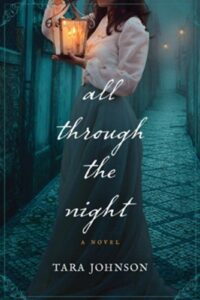By Tara Johnson, @TaraMinistry
When I started on this writing journey a decade or so ago, I gobbled up every bit of writing advice I could find. I knew absolutely nothing and didn’t want to spend years unnecessarily trying to learn the hard way. I attended conferences, took online writing workshops, and read every craft book I could grab. The sheer volume of information was staggering, but with time, I learned what to keep, what to pitch, and most important of all, what worked for me. What the journey looks like is different for everyone.
Want to know my two favorite pieces of advice?
- The villain always thinks he is the hero in his own story.
The key to writing complex, enduring, memorable characters readers fall in love with is to consider each character as if they believe they are the hero. No one grows up thinking, “I can’t wait to be someone’s sidekick.” We each think the story is about us, our goals, dreams, and perspectives. Remembering that simple but pivotal truth keeps me from creating dull, one-dimensional characters. It’s been a game changer.
- My books are not my babies.
Writing a novel is often likened to the birthing process: we toil, sweat, cry, laugh, scream, and the result is a lovely story. It’s an important outpouring of our hearts, but we need to remember it does not determine our worth. Stories are a product…something we create because we have something of value to share. We are messy, broken creatures so, by nature of who we are, we create messy, broken stories. They can be beautiful and full of redemption, but they are not perfect. When we remember what we produce is not who we are, it makes rejection, edits, reviews and the entire writing gig a thousand times easier.
I reached out to my writing buddies to have them share their best secrets. They provided a wide variety of wisdom.
- “Don’t let the seams show.” (In other words, work hard on transitions so your reader doesn’t get whiplash when moving between sections or thoughts.) ~Laurie Davies
- “Just write it all down first. Don’t edit until later.” ~Kathy Vernich
- “It’s okay to write slowly as long as you write steadily. Be consistent. Whatever you do, don’t give up!” ~Tara B. Borgonah
- “Figure out your own way of writing. Don’t force yourself to do the same exact thing as other authors. Find out what works for you.” ~Abigail Harris
- “Keep writing, especially when you’re on a roll. I used to get bogged down in research and editing, which made it hard to actually finish a manuscript.” ~Sharyn Kopf

- When it’s time to edit, you’ll likely edit several rounds (I typically edit each chapter of my Bible study 6-7 times before I’m finished) – the key to know when to stop editing is when you realize the changes are no longer making the chapter better, only different. It may take some experience to know when you’ve reached that point, but it will give you the freedom to finally put the red pen down.” ~Shadia Hrichi
- “Read a lot.” ~Laurel J. Davis
- “You’re not a writer until you get a rejection.” ~Janet Ann Collins
- “Learn the rules before you break them.” ~Sarah Bennett
- “Enjoy the journey. It took me years to get published, but the relationships I made on the way are treasured.” ~Ane Mulligan
- “Don’t spend a long time rewriting your first story. Start working on the next and the next and the next. I had written over 500,000 words in unpublished novels before my first novella (25,000 words) was published. But, by then, I had learned a lot about crafting a story and my career took off. Those 500,000 words have never been published. Had I kept rewriting that first or second story, I wouldn’t currently have 36 published stories in 11 years.” ~Gabrielle Meyer
- “My job is faith. God’s job is outcome.” ~Karen Shafer
- “Write something that makes you laugh, sigh, or cry, or wonder “what if.” If you don’t feel the emotion the reader likely won’t either.” ~Kelly Criste Goshorn
- “Listen to writing advice but only take on what is useful. Adapt methods and ideas to fit the way you work. There’s no one right way to write a novel.” ~Erica Vetsch
- “Run from (fiction) writing advice as fast as you can. Most people have no idea what they’re doing but pontificate about it anyway. Whatever advice you don’t run away from measure against the ultimate test: Does it work?…There is no right, no wrong. There’s just “Does it work?” And does it work as well as it can? Anything can work if done well. All you have to do to know that is read. Maybe that’s the one piece of advice you shouldn’t run away from: Read! Read, read, read. And read as a writer, gleaning from the story what works and what doesn’t. Then go out and do likewise.” ~Ann Cathleen Neumann
Colorful. Diverse. Thought-provoking. What I love about this list is how each author hits a different facet of the writing diamond. Weave all this together, and we could have our own craft book.
To tidy up, I’ll leave you with the wise words of dear friend Susan Sage:
“If you don’t love what you write, no one else will either. Just write. Leave the results to God, but be obedient to the task.”
Well said. And it’s critically important to revere the adage of Jaime Jo Wright…
“Drink coffee.”
With her stammering tongue and quiet ways, Cadence Piper has always struggled to be accepted. After the death of her mother, Cadence sets her heart on becoming a nurse, both to erase the stain her brother has left on the family’s honor and to find long-sought approval in the eyes of her father. When Dorothea Dix turns her away due to her young age and pretty face, Cadence finds another way to serve . . . singing to the soldiers in Judiciary Square Hospital. Only one stubborn doctor stands in her way.
Joshua Ivy is an intense man with a compassionate heart for the hurting and downtrodden. The one thing he can’t have is an idealistic woman destroying the plans he’s so carefully laid. When the chaos of war thrusts Cadence into the middle of his clandestine activities, he must decide if the lives at stake, and his own heart, are worth the risk of letting Cadence inside.
Everything changes when Joshua and Cadence unearth the workings of a secret society so vile, the course of their lives, and the war, could be altered forever. If they fight an enemy they cannot see, will the One who sees all show them the way in the darkest night?
Tara Johnson is an author and speaker, and loves to write stories that help people break free from the lies they believe about themselves. Tara’s debut novel Engraved on the Heart (Tyndale) earned a starred review from Publishers Weekly, and was a finalist in the Carol and Christy awards. In addition to being published in a variety of digital and print magazines, she has been a featured guest on Voice of Truth radio, Enduring Word radio, television and podcasts. She is a history nerd, especially the Civil War, and adores making people laugh. She, her husband, and children live in Arkansas.



